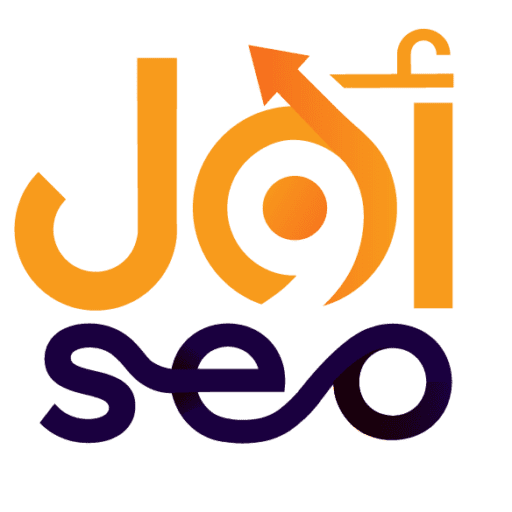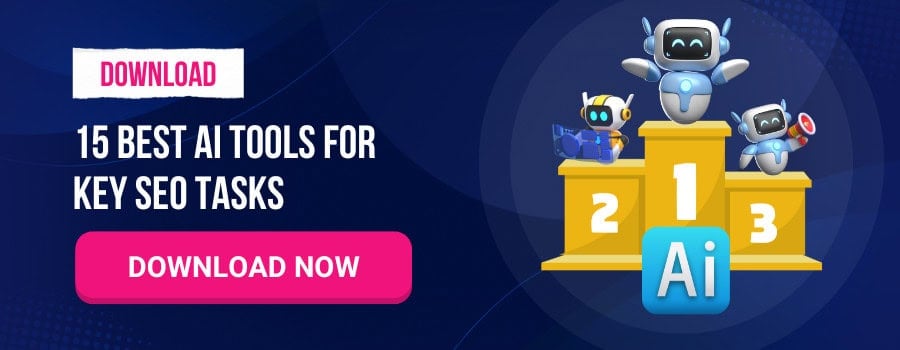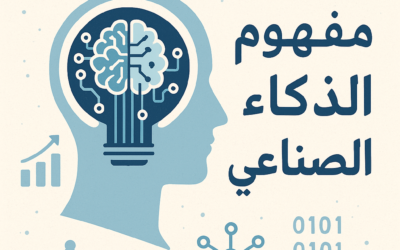Introduction
In today’s digital landscape, the importance of AI in SEO cannot be overstated. As search engine algorithms continue to evolve, integrating artificial intelligence into our SEO strategies has become vital for maintaining competitive advantage. The emergence of AI in digital marketing has transformed traditional methods by offering predictive insights, data-driven strategies, and automated processes that enable us to secure better rankings and more targeted traffic. With the integration of machine learning and deep analytics, businesses are now more equipped than ever to decipher user intent and optimize content accordingly.
One of the most frequently searched queries in this realm is identifying the best AI for SEO. This term encapsulates a range of advanced solutions designed to streamline keyword research, content optimization, and competitive analysis. As we explore how these intelligent systems enhance digital strategies, we also reflect on the evolutionary journey of AI in the marketing world. Early techniques have matured into highly sophisticated processes that not only analyze data but also predict future trends, making them indispensable tools for modern marketers. Today, leveraging AI means achieving faster outcomes, improved accuracy, and a more significant return on investment.
[صورة توضيحية: تطور الذكاء الاصطناعي في التسويق الرقمي]
Understanding AI in SEO
At its core, AI in SEO refers to the application of advanced algorithms and machine learning techniques to optimize digital content and enhance search engine rankings through automation and precision. The integration of AI tools for SEO means that large volumes of data can now be analyzed quickly, revealing patterns and trends that were previously hidden. This technology has revolutionized how we approach keyword optimization, link building, and content creation.
Adopting AI for SEO provides numerous benefits. It not only increases efficiency by automating repetitive tasks such as data collection and analysis but also improves decision-making by offering precise insights into changing search patterns and user behavior. Automation in SEO means that we can now focus on high-level strategic planning while leaving the routine tasks to SEO automation systems. Furthermore, these tools help reduce the margin of human error and provide real-time updates, allowing marketing teams to swiftly adjust their strategies in response to dynamic market conditions.
The evolution from manual data analysis to automated, intelligent solutions has sparked a significant shift in digital marketing strategies. By employing AI-driven algorithms, we are better prepared for algorithm updates and can proactively manage SEO performance. The incorporation of predictive analytics and semantic analysis has paved the way for a new era of SEO—one where insights are both actionable and exceptionally accurate. As we navigate the future of digital marketing, understanding these innovations will become increasingly important for businesses aiming to maintain relevance in an ever-changing online landscape.
How AI Enhances SEO Strategies
The transformative role of AI in SEO cannot be understated when it comes to optimizing digital performance. AI enhances SEO strategies by automating the process of keyword analysis, enabling us to identify and integrate long-tail keywords that drive quality traffic. Artificial intelligence also plays a significant role in content optimization, ensuring that on-page content is aligned with the user’s search intent. By evaluating user behavior and engagement metrics, AI systems provide tailored recommendations that improve content structure and readability. As a result, our SEO strategies become not only more efficient but also more effective in capturing potential leads across various digital platforms.
AI vs Traditional SEO Methods
While traditional SEO methods rely on manual analysis and periodic data updates, AI-driven SEO offers automated, real-time insights into website performance, competitor trends, and emerging search patterns. This modern approach allows marketers to adjust strategies on the fly, ensuring continuous improvement and higher search engine visibility. Traditional methods, although still relevant, often lag in responsiveness and require substantial manual input that can delay critical optimizations. In contrast, AI-powered systems not only process enormous sets of data instantly but also predict future trends, offering us a proactive edge in the competitive digital arena.
| AI-driven SEO | Traditional SEO |
|---|---|
| Automated analysis | Manual analysis |
| Real-time updates | Periodic updates |
Top AI Tools for SEO
In the current digital era, finding and utilizing the best AI for SEO solutions is crucial for businesses striving to enhance their online presence. Our exploration into AI tools for SEO reveals a host of innovative software that not only simplifies complex processes but also offers data-driven guidance to refine your strategies. Among these, several standout platforms have been recognized for their ability to integrate seamlessly into diverse digital strategies. For instance, by leveraging cutting-edge algorithms, these tools provide precise keyword analysis, content optimization, and competitive benchmarking that empower us to make informed decisions.
For those seeking a comprehensive review of top solutions, consider exploring some of the أفضل أدوات SEO. These platforms are known for their robust SEO functionalities and are widely appreciated by experts and industry leaders alike. They range from all-in-one solutions that cater to every aspect of SEO to specialized tools that focus on a singular component of digital marketing. Each tool offers a unique set of features and benefits, making it essential for marketers to understand which best aligns with their specific needs.
By incorporating AI SEO software into your workflow, you gain access to advanced analytics and efficiency improvements that traditional methods simply cannot match. The evolution of SEO is largely driven by innovations in automation and artificial intelligence, and the current suite of tools available is a testament to this progress. With these platforms, we can anticipate better scalability and improved performance across our SEO campaigns, ultimately resulting in higher rankings and increased revenue generation.
Tool 1: SEMrush
SEMrush stands out as one of the premier platforms in the realm of AI-driven SEO. This tool offers a multitude of features ranging from comprehensive keyword research to competitive analysis, making it indispensable for modern digital marketers. User reviews frequently highlight its intuitive dashboard and real-time data capabilities, which streamline the process of SEO decision-making. Experts recommend SEMrush for its ability to seamlessly integrate with various other digital marketing tools, creating a holistic ecosystem that caters to diverse SEO needs. The tool’s automated reporting feature further enhances efficiency by providing actionable insights on a regular basis.
Tool 2: Ahrefs
Ahrefs has earned its reputation as a powerful tool for in-depth backlink analysis and keyword exploration. With its sophisticated data collection methods, Ahrefs enables marketers to identify critical link-building opportunities and track competitors effectively. Its user-friendly interface and robust database make it a favorite among SEO professionals, particularly when speed and accuracy are of the essence. The benefits of Ahrefs extend beyond basic SEO metrics; its advanced features also include content gap analysis and rank tracking, which ensure that we are always one step ahead in the competitive digital landscape. Both new users and seasoned experts appreciate the reliability and precision this tool brings to the table.
Tool 3: Moz Pro
Moz Pro is another notable player in the AI SEO platforms arena, known for its comprehensive suite of SEO tools that cater to both beginners and professionals. This platform is particularly valued for its advanced on-page optimization recommendations and comprehensive site audits, which help identify critical areas for improvement. Moz Pro’s intelligent algorithms and user-friendly interface have garnered positive reviews following its steady performance in real-world applications. Users benefit from clear visualizations of SEO performance and actionable insights that allow us to adjust strategies promptly. The tool’s ability to simplify complex data into understandable metrics makes it an essential resource for any SEO strategy.
Tool 4: BrightEdge
BrightEdge rounds out our list as a robust AI-driven platform that excels in providing market intelligence and SEO insights on a grand scale. It offers a unique blend of automated reporting and predictive analytics that empowers marketers to forecast future trends and refine their strategies accordingly. BrightEdge’s strengths lie in its ability to integrate comprehensive data streams into a centralized dashboard, providing an all-encompassing view of digital performance. User testimonials highlight its efficiency in streamlining workflow and enhancing overall productivity. Experts often recommend BrightEdge for larger enterprises looking to leverage detailed insights and innovative reporting capabilities to achieve and sustain high search engine rankings.
[صورة توضيحية ثانية: أدوات الذكاء الاصطناعي لتحسين محركات البحث]
Implementing AI in Your SEO Strategy
Integrating AI tools into your SEO strategy is a systematic process that begins with understanding your business needs and ends with continuous optimization. In an ever-evolving digital environment, this integration ensures that we remain agile and well-equipped to handle both current challenges and future opportunities. The implementation process involves several key steps – from identifying your specific SEO needs to choosing the right tool, integrating it with existing systems, and continuously monitoring its performance to adjust strategies as needed. With the right approach and a clear roadmap, adopting AI can significantly boost productivity, reduce inefficiencies, and propel long-term online success.
Step 1: Identifying Needs
Before adopting any AI-driven solution, it is essential to thoroughly evaluate your current SEO strategy. Assess your website’s performance, analyze your keyword rankings, and determine the areas that require improvement. This diagnostic phase involves gathering comprehensive data about your website’s traffic, engagement, and conversion rates, allowing us to identify specific pain points. By understanding these metrics, we can pinpoint where automation and intelligent insights will have the greatest impact. A detailed needs assessment sets the foundation for selecting the most appropriate tools that seamlessly integrate with your business objectives.
Step 2: Choosing the Right AI Tool
Once your needs are clearly outlined, the next step involves selecting a tool that aligns perfectly with your objectives. Consider factors such as the scope of features, scalability, and ease of integration into your existing systems. It is also important to read reviews and consult expert recommendations to ensure that the chosen tool meets industry standards. By weighing the pros and cons of various options, you can decide on the AI solution that offers the best balance between advanced functionality and user-friendliness. Making an informed choice in this phase is critical for maximizing the effectiveness of your long-term SEO strategy.
Step 3: Integration and Training
Integrating an AI tool into your existing SEO framework involves both technical setup and team training. Begin by ensuring that the tool can seamlessly interface with your current digital platforms and analytics software. Iron out technical kinks by working closely with your IT team or the tool’s customer support. Once the system is properly configured, invest adequate time in training your team to understand and effectively utilize the new features. This phase is crucial as it ensures that every member is well-versed with the tool’s capabilities and can extract the maximum value from it. A smooth transition boosts productivity and lays the groundwork for continuous improvement in SEO practices.
Step 4: Monitoring and Optimization
The final step involves a continuous process of monitoring the tool’s performance and making data-driven optimizations. Set clear benchmarks and track key performance indicators, such as keyword ranking improvements, organic traffic growth, and conversion rates. Regularly reviewing analytical reports will help you identify areas where further adjustments are needed. This proactive approach facilitates the timely resolution of issues and ensures that your SEO strategy remains responsive to evolving market trends. In conclusion, constant refinement and optimization are essential to capitalizing on the benefits offered by AI, ultimately leading to sustained improvements in your digital marketing results.
[صورة توضيحية ثالثة: دمج أدوات الذكاء الاصطناعي في استراتيجيات تحسين محركات البحث]
Future of AI in SEO
The future of AI in SEO is a landscape filled with promise and innovation. As digital marketing continues to advance, the role of AI is anticipated to expand beyond current capabilities, offering even more sophisticated tools and strategies to enhance online visibility. Emerging trends indicate that AI will become increasingly integral in predicting user behavior and automating complex SEO tasks. This progression is likely to usher in an era where search engines are not only reactive but also predictive, paving the way for highly personalized and responsive digital marketing strategies. The dynamic nature of digital markets means that our approach to SEO must continuously evolve, and AI stands as the catalyst for this necessary transformation.
Emerging AI Technologies
Emerging AI technologies are set to redefine the standards of SEO excellence. Innovations such as natural language processing and advanced machine learning algorithms are pioneering new ways of understanding user intent. We can expect these technologies to facilitate more granular content optimization and predictive analytics that anticipate shifts in search trends before they become mainstream. Furthermore, the integration of voice search optimization and image recognition is likely to open up entirely new fields of opportunity. These developments will empower us to create content that is not only highly relevant but also dynamically adjusted to meet real-time user demands, marking a substantial leap forward in SEO capabilities.
Long-term Implications
In the long run, the pervasive adoption of AI in SEO is expected to yield transformative benefits for the digital marketing landscape. Over time, as these tools become more refined, we are likely to witness a marked reduction in manual intervention, freeing up resources to focus on creative strategic initiatives. The continuous stream of data-driven insights will drive more nuanced content strategies and foster more robust customer engagement. As AI systems learn and adapt, the gap between predictive and reactive strategies will diminish, leading to more efficient and agile marketing practices. This evolution will ultimately empower organizations to not only maintain their competitive edge but also to drive sustainable growth in an increasingly digital world.
[صورة توضيحية رابعة: مستقبل الذكاء الاصطناعي في تحسين محركات البحث]
Case Studies and Success Stories
Real-life examples of successful AI implementation in SEO provide compelling evidence of its transformative potential. Several businesses have revolutionized their digital strategies by integrating AI tools, resulting in enhanced keyword rankings, increased organic traffic, and improved conversion rates. Companies that have embraced these intelligent systems report that the automated insights have allowed them to make more strategic decisions, ensuring that they remain competitive in a rapidly evolving digital environment. In many cases, the simplicity and efficiency of AI-driven solutions have transformed routine SEO tasks into opportunities for innovation and growth.
As one SEO Expert noted,
“AI has revolutionized our approach to SEO, providing insights that were previously unattainable.”
This collective success story underscores the value of adopting advanced, data-driven methods in our SEO strategies and reinforces the importance of staying current with technological advancements to drive meaningful results in digital marketing.
Conclusion
To sum up, the journey towards integrating AI into SEO strategies is both exciting and essential for staying ahead in today’s fiercely competitive digital environment. We have explored how the best AI for SEO solutions—ranging from platforms like SEMrush, Ahrefs, Moz Pro, to BrightEdge—are redefining keyword research, content optimization, and competitive analysis. These tools not only automate complex tasks but also provide us with actionable insights that lead to more agile and efficient digital marketing practices.
By embracing AI-driven approaches, we position ourselves to reap significant benefits, including enhanced targeting, improved performance, and greater scalability. The evolving nature of digital marketing demands that we continually assess and adapt our strategies, and AI offers the innovative edge needed to thrive in this environment. As the future unfolds, we can expect even more groundbreaking advancements that will shape the way we approach SEO and online engagement. For businesses looking to secure long-term success, the integration of AI into SEO is not just an option—it is a necessity.
We encourage our readers to explore these cutting-edge AI tools and consider how they can transform their SEO strategies, driving a more robust and sustainable digital presence. Embrace the future of SEO and let AI pave the way for a world of endless possibilities.





